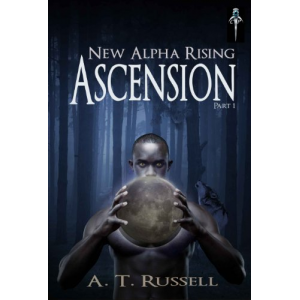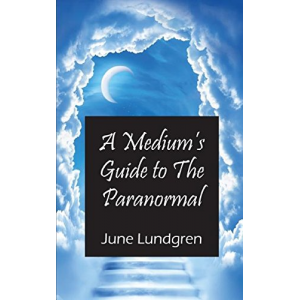- Author
- Book
- Story behind the book
- Media Links
- Reviews

David Bowman
About
David Bowman specializes in writing well. With over 20 years of editing experience, Mr. Bowman has a wealth of strategies and advice to help you communicate in writing, connect with your reader, and reach your goals.
David Bowman is the author of 7 books on writing, the popular Precise Edit Training Manual, 300 Days of Better Writing, Zen Comma, Which Word Do I Use?, Bang! Writing with Impact, Concise Guide to Technical and Academic Writing, and Your Writing Companion. In addition to serving as the chief editor of Precise Edit, he is a writing instructor for the University of New Mexico and private writing coach and consultant for many organizations.
Mr. Bowman knows that all people need to write well: it's how we communicate with each other. However, writing is an overlooked skill. He writes books on writing so that others may learn to write-and edit-like a professional. These are more than books on grammar and punctuation. These are books on effective communication through writing.
Written to be practical, they are excellent guides and references for anyone who needs to communicate in writing.
Follow David Bowman's blogs:
300 Days of Better Writing
Precise Edit Blog
Zen Comma
Company Site: Precise Edit
Books and Resources: Hostile Editing

Peter and the Whimper-Whineys
Description
<span style="line-height:115%;font-family:Calibri, 'sans-serif';font-size:11pt;"><span style="font-family:Calibri;">Peter and the Whimper-Whineys is about a small rabbit who whines all the time. His mother cautions him that if he keeps on whining and crying, he’ll have to go live with the Whimper-Whineys. One night Peter hops into the dark forest.<span> </span>He meets some Whimper-Whineymen and discovers that not only do the Whimper-Whineys whine all the time, but they are very ill-mannered and rude. He discovers that everything is sour in Whimper-Whineyland and decides his mother was right! If only he can get back home… a recent critique, “Though there are other books out there for children about whining, I cannot imagine any parent or guardian not wanting to read this book to their child!... <span> </span>Parents everywhere applaud you!” </span></span>
Story Behind The Book
The general concept behind this book is simple. If writers learn one new writing strategy every day, over time their writing will greatly improve; their writing will get better for each of 300 days. As a whole, 300 Days comprises our best strategies, advice, and instruction for writing well. This book is about communication, and I am passionate about communication. Communication is how people interact. It’s how people reach their goals. It’s how we grow as individuals and societies. Many people struggle with communicating, particularly in writing. My biggest hope is that people will use these strategies and learn to communicate effectively. How does this book differ from other writing guides? This book is different in several ways. 1) Practical. This book addresses a comment from a writing student many, many years ago: “Just tell me what to do.” That’s what this book does. It provides 300 answers to the question “What can I do to make my writing better?” 2) Easy-to-grasp. This book takes big topics, such as paragraph structure, and breaks them down into individual strategies. For example, instead of telling writers, “Here’s everything you need to know about clear sentences,” it says, “Here’s one thing you can do right now to make your sentences better.” I will add that the book contains a topic index for those readers who wish to read many strategies on a specific topic. 3) Instructional, not “fluffy.” Many books include cute cartoons, or tell stories about the author, or discuss the history of writing styles, or talk about various writers. Those authors are trying to entertain instead of trying to teach. In respect for the reader, 300 Days of Better Writing stays focused on instruction. 300 Days of Better Writing contains over 70 thousand words of instruction, and that’s a lot of instruction on how to write well! 4) No English degree needed. Let me toss in one more difference. This book doesn’t expect readers to have English degrees and know a lot of grammar terms. If I needed a term to explain a strategy, I first explained the term. However, readers with English degrees will find this book valuable, too. Much of the content in 300 Days of Better Writing is not taught in English programs. This book contains 3 types of information: 1) Writing well. These are editing strategies for communicating clearly, directly, and purposefully. This category contains the most strategies by far. For example, the book has 33 unique strategies on effective sentence structure and 33 strategies for using descriptions and modifiers. 2) Writing correctly. These are techniques for using correct grammar, punctuation, and usage. 3) Writing to accomplish a purpose. These are strategies for engaging readers, persuading them to believe you, and emphasizing your ideas.
Media Links
Reviews
<p style="margin:0in 0in 0pt;" class="MsoNormal"><span style="font-size:11pt;"><span style="font-family:'Times New Roman';">“Instead of a dry, lifeless grammar instruction book, the guide is intended as a dose of daily advice with enough variety and wisdom to make the tips stick . . . Big words and concepts don't seem nearly as intimidating when broken down into bite-sized chunks and delivered with accuracy and clarity. You'll find yourself looking forward to the tips and advice—and grasping the ideas quickly. If you want your writing to grow as you write and learn, this is the book that will carefully lead you, day by day, to improved writing.” </span></span><em><span style="font-size:11pt;"><span style="font-family:'Times New Roman';">John Upchurch, Amazon Reviewer</span></span></em></p> <p></p>






